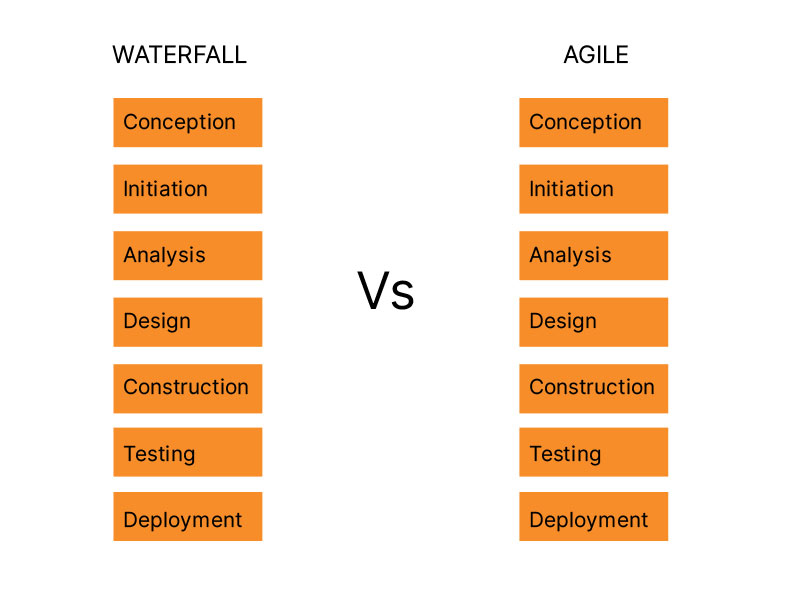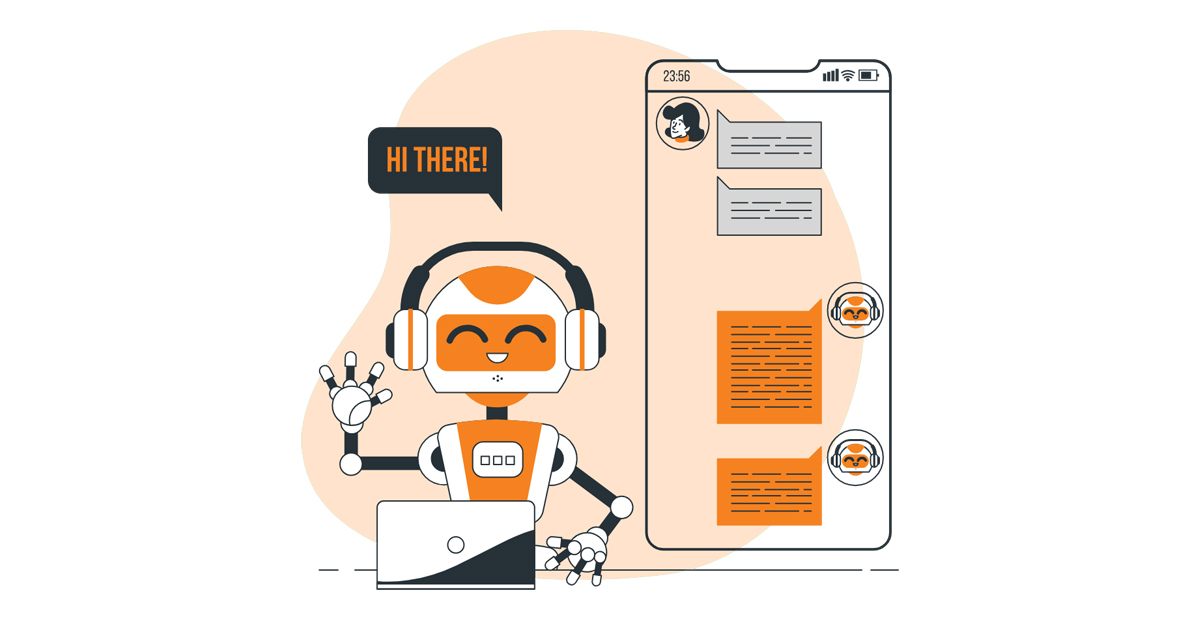A well-executed product scalability model decides the fate of a product.
In earlier stages, scalability isn’t a top priority for developers, and they focus more on the software’s ability to solve tasks rapidly and efficiently.
But moving forward, as the product enters the market, developers and business owners focus more on the software product itself- a process needed to secure one’s place in the market and grow further.
And how is that done effectively? Well, there are many ways to do the same. In this article, we’ll review the potential strategies to ensure scalability in your product!
The Big Scalability Challenge
You’ve clearly figured out how to take your million-dollar idea, package it and deliver it to market. Taking that early market traction and expanding that to penetrate the broad market is by far the biggest challenge of scalability.
Why this becomes a challenge?
- Your early customers may vary significantly from the customers who later expand and grow your business.
- Complexity and required communication flow will expand largely as your business grows, significantly as you scale the product.
Fret not; we’ve got this aspect covered for your software product!
However, scaling a product doesn’t begin post-building an MVP. Think scalability from the get-go! Doing so will help each of the next steps you take – from the product development process to choosing the right tech stack for the product and scaling to market after that.
Steps to Include Scalability in your Business
Ideate & Validate
Before the development phase of every product, it is imperative to ensure that the product is in demand and tackles a real issue faced by businesses.
According to Harvard Business School, over 30,000 new products are introduced yearly, and 95% fail.
Ouch!
And this happens when your product needs more market and a user-imperative.
Hence, don’t just start with the development process. Start acting on the idea, give it some thought process and find answers to these questions;
- Does your product have a fair chance of being likable?
- Does your product solve a fair issue?
- How saturated is the product market?
- What is your target market? Is that just some folks that want your product, or are there more people like this?
Another pro tip could be building an MVP and gathering feedback from the target audience.
Hire a product manager
Generally, the idea begins with higher management. A COO or CEO would toss a view to the team, who would work together to bring that idea to life. However, it is the responsibility of the project manager or product team to develop that idea and bring it to the market.
Hiring a product manager that can take up full responsibility for the product, has decision-making capability, and can take your effect towards success would help you ace the game of product scalability.
Also, Read Product Development Framework: A Brief Guide on Lean, Agile, Scrum
Scaling out the product
While horizontal scaling has more significant benefits, the capacity of scaling is limited. You can start small and build up your system with the scale-out approach. Another crucial decision could be outsourcing the development procedure and measuring the scalability by executing the dry run scenarios.
Now, if you have decided on outsourcing the services, you need to be careful concerning the perspective of the product to avail the best results.
Which is the correct methodology?
After finalizing the course of action, you must also decide on the proper development method.
The two popular methodologies here are agile and waterfall.
Agile methodology provides better product iterations, technological innovations, and consumer feedback. On the other hand, the waterfall methodology depends entirely on initial requirements.
Here’s a quick comparison for you to understand the two methodologies better:

Choosing the right tech stack
When talking about scalability in terms of engineering, we need to focus highly on choosing the right tech stack. This means you have crucial decisions while selecting the right tech stack for your product.
Here are a few things that need to consider before deciding on a tech stack;
- Do you need an app, web service, or both of them?
- Do you want to develop iOS or Android or both?
- Deciding between back-end and front-end
- Be sure of the client language or browser-side scripting- Angular JS, Java, Python, etc.
You can hire an outsourcing product development team to simplify the process.
Envision your product
It is imperative to envision your tech product. When initiating the development, critical decision-making goes into the hands of development teams, and you need to provide them with the correct details for your business.
This would help you to visualize your product better. It is also a significant time to understand and respect the number of users, buyer’s persona, and ideas concerning the type of servers.
Start Selling in the initial phases.
Why do you have to wait for the final product to start selling? This leaves you with the idea of selling an unfinished product.
“Over-optimizing for information flow & transparency is the key.” – Ariel Tsietlin (Scale Venture Partners)
But how can we do that? With agile methodology!
Agile methodology allows you to always have a product that is market ready.
The advantage of starting selling at an initial phase is that you can get important feedback which is essential for business and success.
These seven pointers mentioned above sum up how you can add scalability as part and parcel of the engineering & overall engineering process. The key takeaway is that not only the CEO & COOs but the project managers and development teams play an essential role in scaling the product.
Scalability doesn’t stop right there!
The main challenge of retaining existing users while garnering new users for the software product is an ongoing uphill battle, one which you will face through the existence of your product.
It is essential to figure out a product scalability pathway for post-launch or ensure that your software penetrates the broad market.
Understand that the product that makes you your first million is unlikely the same product that makes you a 100 million – everything boils down to how to scale further.
Practical steps to scale your company by scaling your software product development:
Iterate & Innovate
Innovation continues beyond phase 1 of development. To keep users coming back, you have to keep iterating and innovating the product.
- Continue to create an experimentation framework.
- Work on product enhancements
- Work on different product features & initiatives that would work well together.
For instance: Amazon started as a bookseller and found wild success, but with experimentation and the constant addition of product features and initiatives, it is now one of the largest eCommerce giants in the world.
Optimize for Information Flow and Transparency
As a result of continual experimentation and the addition of product features, the product becomes complex and requires more support in terms of staffing and training to help customers understand the product better. However, the complexity of this product and the lack of proper flow of communication or transparency can hinder the expansion of users.
Chalk out KPIs
Making data-driven future decisions is extremely important. The best way to go forward with that is by chalking out two to three Key Performing Indicators (KPIs). Having KPIs and gauging the next steps using the data from these KPIs can help avoid making arbitrary, guess-based decisions.
1. Security
As the physical world becomes more connected with each other and the direction in which the world is heading, it’s essential to focus on data security and its relevance to business.
From the development phase to post-launch, creating lifetime value is the backbone of your business scalability.
Every new product/project starts with a ground-breaking million-dollar idea. An idea will require either a freelancer’s technical expertise or an offshore development center. But which one do you choose? A freelancer? Or an ODC?
Don’t let your minds dilly-dally!
We’ve got all the information you need to make the best choice for your company!
Let’s start by understanding the major differences between freelancers and offshore development agencies.
Freelancers vs. Offshore Development Agency: Understanding Differences
Want to make the right decision? These important factors will help you make the right call.
2. Reliability Factor
Freelancers
Freelancers tend to commit to a project to its completion and launch. Rarely do they commit to improvising the project as per the needs the company faces post-launch? This is especially true of freelancers when integrating new features into the project as per market demands.
They might not be available to make changes, which poses havoc for businesses, especially startups with limited in-house personnel with expertise in the area. This could delay the procedure of integrating new features and be inconvenient.
Offshore Development Center
One of the major advantages of opting for a dedicated offshore development center is that they won’t desert your team soon after completing your software development project.
Recruiting dedicated software developers from offshore development centers gives you the advantage of availability post-project completion. They assist with maintenance, upkeep, and future support within the contractual period.
3. Long-Term Association
Freelancers
Even with the extreme precautions with which both ends of the freelancer-client relationship are handled, it is easy to cultivate a fragile sense of detachment. This is not for lack of trying on both ends.
And, although freelancers prefer to work on a project-to-project basis, it garners them better pay than working with a single client. This makes it tough for them to pick long-term projects.
Offshore Development Center
On the other hand, offshore development centers prefer working with companies that treasure long-term association and many complex projects that last over a long period.
Offshore development agencies must develop trust to work on a long-term project efficiently. Both agency and client make an equal effort to build this type of relationship for the success of the project and the longevity of the work alliance.
Long-term relationships entail constant maintenance of products, regular updates, quick fixes, and some additional functionalities specific to the project, as per requirements. Given that, companies can also pick the right cost-effective hiring model preferred for the sake of meeting project requirements.
3. Expertise in Creating Software Solutions
Freelancers
Another advantage of choosing freelancers for your project is the level of expertise that they bring to the project. Typically, they have one skill set that they ace and can execute efficiently.
Running a business on their own makes them savvy at picking a skillset and excelling at that particular niche.
Given that, it may not be possible for freelancers to guide companies on the right technology required for the project. They may also heavily depend on the trial and error phase to perfect the methodology matching your development needs.
Offshore Development Center
Similarly, while working offshore development centers, each member of your offshore team is equipped with extensive skills and knowledge in their domain. And they have the experience needed to leverage the use of different technologies previously worked on in other projects. Every skilled person in the offshore team is ready to address development issues at any moment.
4. IP Protection & Data Security
Freelancers
By far, the biggest risk of working with freelancers is adherence to confidentiality and compliance with governing laws of the business niche. Within the IT realm, confidentiality is the bread and butter of the industry. Due to their lack of proper infrastructure within their small-scale business operations, freelancers need to provide enterprise-level data security.
Offshore Development Center
Dedicated offshore development agencies provide IP protection and confidentiality, especially as they adhere to a contractual NDA. Additionally, ODCs include enterprise-level security audits to ensure excellence in securing your business’s critical data.
Our Netsmartz team recommends that companies sign an NDA before starting work with offshore teams or trusted freelancers.
5. Quality
Freelancers
It is significantly harder to ascertain if freelancers have followed [rescribed coding standards, especially as they work independently. It’s not easy to hold freelancers accountable for the quality of the product as they aren’t too concerned with the project quality, especially post-project launch.
Another disadvantage concerning the quality of work concerned freelancers is that they need to ensure a steady timing for their working hours, making it hard to track the work freelancers take on. Their hours are chalked in uncertainty and thus can pose an issue with organization and time management of the project.
Offshore Development Center
The offshore development team springs into action when the project needs dire care. They also step in as strategic partners who provide qualitative and quantitative services per project demands, market research, coding, and process-oriented roles. Doing so keeps the team providing impeccable service at each project phase.
Additionally, offshore teams are process-oriented and pre-vetted to provide project oversight, smoothing down the kinks in during client communications and keeping them performing their best. Project managers and tech leads ensure constant tracking of workflow and quality and relay feedback from clients to ascertain that everything is running smoothly.
6. On-demand Scalability
Freelancers
Often working with freelancers entails working with an individual. However, if the project demands multiple experts, hiring freelancers to fulfill those additional demands can be gruesome, not to mention expensive. Working with multiple freelancers could incur delays – from timelines to communications to completion.
In fact, another huge disadvantage of working with freelancers is the need to touch base with several contact points to ensure the work of individual contractors is up to par with standard subject matter expert developers.
Offshore Development Center
On the other hand, given that a project needs on-demand expertise midway through the project, offshore development companies can access a large pool of highly skilled, readily available developers across various technologies. This ensures that all on-demand scalability needs are met timely. Sudden curves in the project requirements’ demands can be met easily.
When to Choose Freelancer or Dedicated Offshore Development Center?
Given all the pointers mentioned above, how can you make the best choice for your business based on this? You may wonder!
Here’s addressing when to choose a freelancer and when to choose a dedicated offshore development center:
Choose Freelancers
Freelancers are ideal candidates for companies looking for expertise in one area.
Typically, choose freelancers if your project is small and requires a maximum of 2 to 3 months of engagement.
Suppose the project is not complex at all. If you require freelancers to complete your projects easily because ether worked on a similar project is a good idea to choose freelancers.
If you have a significantly lower budget than most companies would render their services, choose freelancers.
Choose Offshore Agile Development Services
An offshore development center is ideal for your business if:
The project is a large-scale complex one that requires one to six years of engagement to see to fruition.
Requires complex execution and skillset.
Requires dedicated software engineers with expertise across technology stacks. \
They are concerned with mobile app development.
These are the criteria based on which your business should choose between offshore development center services or freelancers. There are far too many advantages to using ODCs than working with freelancers.
Why Should You Choose “Netsmartz” as Your Offshore Partner?
Netsmartz, over the last 23+ years in business, has worked on over 2000+ projects to full completion as a strategic scaleup partner. With our streak of success in assisting a plethora of different startups, scaleups, and enterprises worldwide, we can do for you what we achieved with them.
We assist in achieving all intended goals within the allotted timeframe and budget. We understand each of your offshore issues and offer round-the-clock support and maintenance. We ascertain your software risks and help you overcome them.
We offer:
- Cost-effective premium software development resources.
- Dedicated agile-based teams in every technology ( React, Flutter, Angular, Php, Java, Vue.js, .NET, Python, iOS, Android, etc.)
- Commitment to stipulated timelines
- Seamless integration with in-house teams for collaborative efforts
Schedule a call with us to partner with Netsmartz Offshore Development Centre.
Summary
Kickstart Your Project With Us!
Blog
Popular Posts
CONTACT US
Let's Build Your Agile Team.
Experience Netsmartz for 40 hours - No Cost, No Obligation.
Connect With Us Today!
Please fill out the form or send us an email to
 Don't Miss Out:
Don't Miss Out: 







